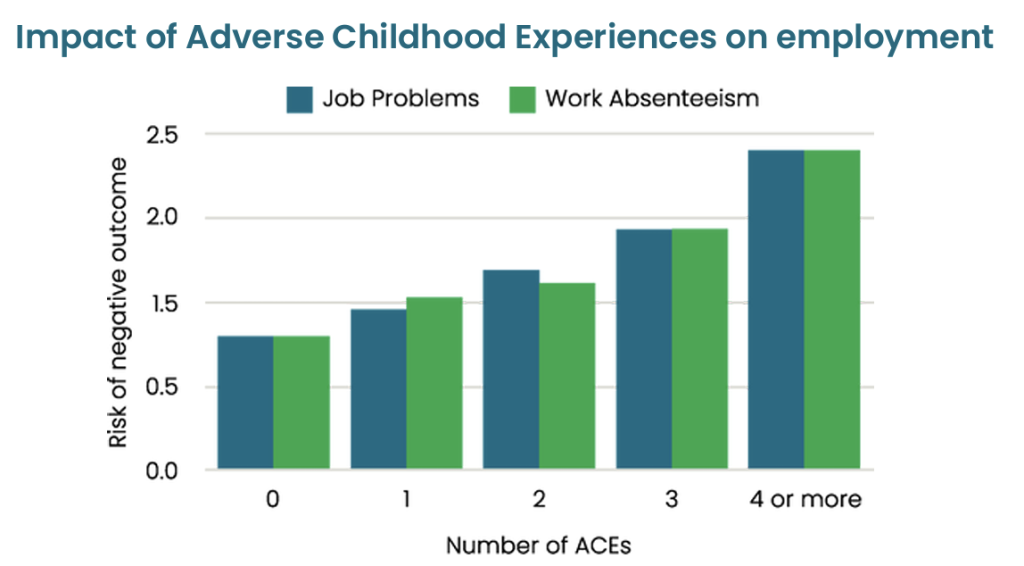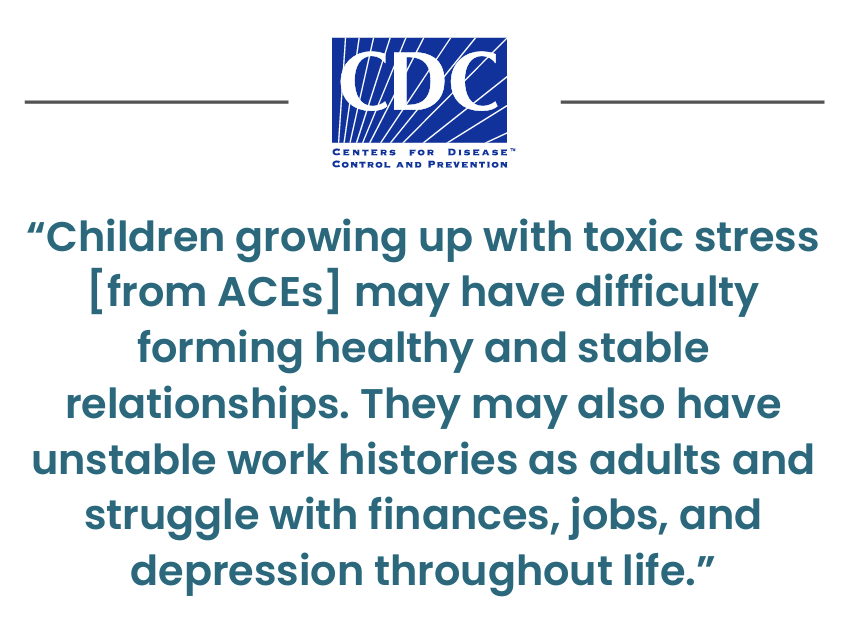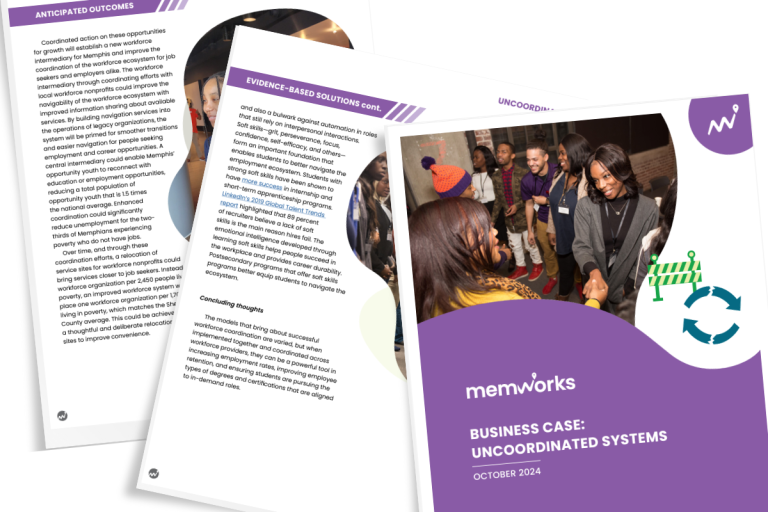Employers need employees they can count on to show up and provide a great customer experience. It’s understandable that two of the common pain points local employers share are absenteeism and lack of executive function or ”soft” skills. MemWorks has identified one of the root causes of these issues to be the magnitude of trauma that our local workforce has experienced, especially as youth.

More than half the adults in Shelby County have experienced at least one traumatic experience in their childhood, with over 110,000 having experienced four or more. Adverse Childhood Experiences (ACEs) have been connected to “toxic stress,” a term the National Scientific Council on the Developing Child uses to describe the effects of excessive activation of stress response systems on a child’s developing brain, immune system, metabolic regulatory systems, and cardiovascular system.

While ACEs focus primarily on events in the home, the definition has been expanded to take into consideration community and systemic causes—such as violence in the child’s community and experiences with racism and chronic poverty—because the body’s stress response does not distinguish between overt threats from inside or outside the home environment.

A strong correlation exists between the number of ACEs experienced and the probability of negative employment outcomes. This includes problems interacting with colleagues at work and absenteeism as well as taking jobs that earn less income and experiencing greater unemployment rates. Mental health support and trauma-informed practices will be important components if we want to unlock employment pathways in Memphis.

In the coming months MemWorks will share evidence-based recommendations to help workforce organizations incorporate trauma-informed practices and policies. Taking the time to create a supportive employee culture can give companies a recruiting and retention advantage in the market. That’s good for Memphians experiencing poverty, and good for business.
Treating Trauma in Shelby County
Providing workforce development support for people who have experienced trauma is something Steve Nash, Executive Director of Advance Memphis, does every day.
“We’ve had students come to our classes after being told the night before that their best friend had been murdered,” said Nash. “One of our students was a mom who came home to find her son unresponsive. She watched the paramedics bring him back, then got up and went to work the next day.”
Dealing with this magnitude of trauma can require time to process and professional support. Without support, people often develop coping mechanisms that can impact their behavior and health. On average, Nash estimates that the average Advance Memphis participant has experienced at least 5 ACEs.

In response, Advance Memphis keeps a counselor on staff to serve participants and staff because “pressing on” doesn’t work. De-stigmatizing mental health support has been critical in encouraging participants to utilize the services. Nash leads by example, speaking freely about his own experiences with therapy.
Building trust is another key enabler to help those dealing with traumatic experiences. “We operate by loving our neighbors as ourselves,” Nash said. “The body keeps score and doing this work and caring for your team is important. You have to invest in it, as a company, you have to value it.”






